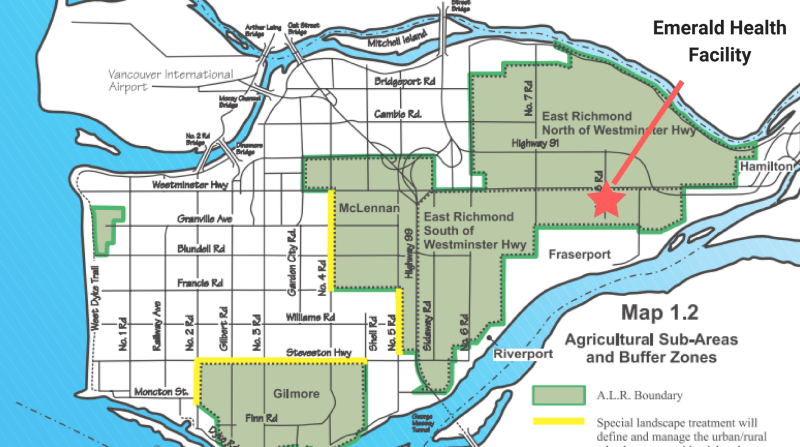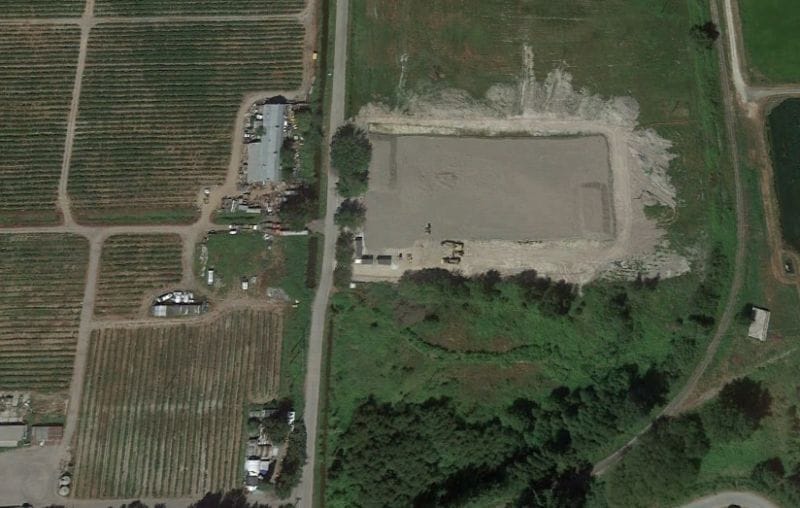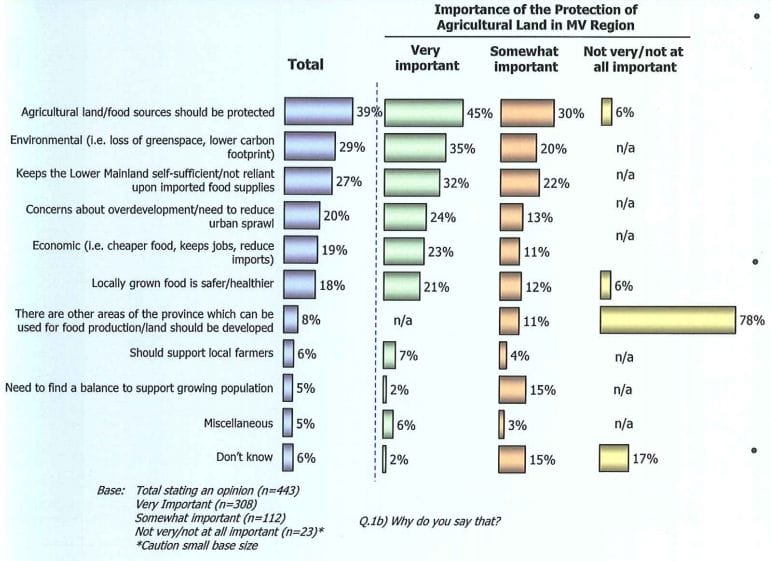As we reported Tuesday, a proposed a zoning amendment that would have increased the maximum allowance of growth space for cannabis LPs operating in Hamilton, ON from 24,000 sq/ft to 968,000 sq/ft was defeated by Hamilton’s City Council this past Wednesday, by a vote of 9-4.
Public companies in the burgeoning Cannabis sector, all of whom are still in the process of building marijuana cultivation facilities and having them licensed, have been using the term ‘funded capacity’ to describe the volume of product that they project the facilities they’ve raised the money to build will yield.
Typically, after securing a deal for land and designing a facility to be built on that land, an LP will tell the market that it has “(insert large digit here) kg’s per year of funded capacity,” which looks great on paper, but ignores the fact that, in many cases, the companies have yet to ask the local governments how they feel about it.
The decision in Hamilton to not expand the allowable grow space for cannabis co’s appears to have cut short the plans of at least three publicly traded LPs.
Hamilton LPs:
| Company | Property | Current operation (sq/ft) | Announced Hamilton buildout (sq/ft) | Announced size in excess of current 24k sq/ft limit |
| The Green Organic Dutchman (TGOD.T) | Hamilton (Ancaster) | 7,000 | 150,000 | 126,000 |
| Invictus MD (GENE.V) | AB Labs | 15,600 | 55,600 | 31,600 |
| AB Ventures | 101,000 | 77,000 | ||
| Beleave (BE.C) | Beleave Campus | 14,500 | 80,000 | 56,000 |
| Total: 290,000 |
BC: strawberry fields forever
The trend of local governments reserving the right to keep cannabis out of agricultural land, for either practical or political reasons is alive and well in BC.
Last Friday the BC Ministry of Agriculture amended BC’s Agricultural Land Reserve rules to enable municipal and First Nations governments in BC to prohibit cannabis production within their communities, effective immediately, unless it is grown in ways that preserve the productive capacity of agricultural land.
The amendment does not affect LP’s who are growing:
- in an open field;
- in a structure that has a soil base;
- in a structure that was either fully constructed or under construction, with required permits in place, prior to July 13, 2018; or
- in an existing licensed operation,
But it does create a roadblock for cannabis companies looking to construct new concrete-floor greenhouses.
The protection of agricultural land is important to Metro Vancouver voters. In 2011 the Mustel Group Market Research conducted a study showing that 93% of Metro Vancouver residents agree that it is at least “somewhat important” to protect agricultural land in Vancouver, and 67% believe it is “very important.” Metro Vancouver survey respondent’s strongest opinion appears be that “food sources should be protected.”
City councillors from Metro Vancouver suburbs of Richmond and Delta have made strong public statements about protecting those agricultural areas, and such actions could effect a number of LP’s with operating and under-construction facilities in those jurisdictions.
The city of Richmond gave Emerald Health (EMH.C) a permit to build a warehouse on their fully owned property which sits in the ALR zone. Richmond News reported that the city was informed the warehouse was intended to grow vegetables and that Richmond City Councillor Linda McPhail stated, “if the landowner intends to switch from vegetables to marijuana, it should have to go through council.”
A report in Monday’s Vancouver Province entitled: Farmers fight for their rights in battle over pot growing” has Richmond Mayor Malcolm Brodie worrying about the permanence of pot facilities: “We’re talking about the threat of huge concrete bunkers that could degrade perfectly good farmland in a way that it will never go back to soil-based farming.” This echoes the land use land use concern shared by residents and Councillors of Hamilton.

That’ll be the day
Concerns in BC appear to have started when the city of Delta, just south of Richmond, brought forward a resolution to the Union of B.C. Municipalities calling on the provincial government to “prohibit or place restrictions on the use of ALR land for cannabis production.”
Delta Mayor Lois Jackson is in strong support of the recent amendment. She said it would be a “travesty” for the province to rely on other countries for food. Jackson also stated, “The homework has not been done, and the fallout from some of the things the federal government has decreed doesn’t fall on the federal government, it falls on local government.”
Richmond/Delta LP’s in ALR land
| Company | Property Name | Location | Current Size (sq/ft) | Announced Size (sq/ft) |
| Emerald Health (EMH.V) | Metro Vancouver | Richmond | (under construction) | 500,000 |
| Canopy (WEED.T) | BC Tweed | Delta | 900,000 | 1,700,000 |
| Invictus MD (GENE.C) | OptionCo | Delta | 4,000 | 4,000 |
| Emerald Health/Village Farms JV (EMH.V/VFF.T) | Delta 1 | Delta | 2,600,000 | 2,600,000 |
| Emerald Health/Village Farms JV (EMH.V/VFF.T) | Delta 2 | Delta | 1,100,000 | 1,100,000 |
| Emerald Health/Village Farms JV (EMH.V/VFF.T) | Delta 3 | Delta | 1,100,000 | 1,100,000 |
| Total: 7,004,000 |

‘Cause I’m the taxman, yeah, I’m the taxman
The Delta Optimist reports that Nanaimo Mayor Bill McKay said farmers who raise crops on the land reserve pay much lower taxes than manufacturers who make products in industrial areas. He also said that “the lower tax rates that we have for ALR land is intended to be able to provide an opportunity for people to grow food, not a high-profit crop.”
Private BC LP Tilray Inc. operates in an industrial zone in Nanaimo and pays the full commercial tax rate, McKay noted. Tilray is one of 31 producers that have inked deals with the province to supply recreational weed to stores once it’s legal.
Zenabis was the second company in the Lower Mainland to be issued a cultivation licence by Health Canada. The Zenabis facility in the industrial zone in Delta along the Fraser River which is not under ALR regulation.



